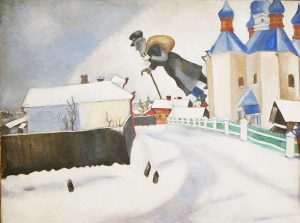 Hi. My name is Laen Avraham Dov Hershler. I am the child of Jewish immigrant (settlers) to Canada from South Africa in the 1970s. My great grandparents had been settlers to South Africa from Latvia, Lithuania, Israel and Hungary. While I am born and raised in Canada, my historical ties to this land is rather tenuous. In fact , based on my families active migration patterns, my only genetic claim to physical land is through my ancient tribal, Jewish roots (which is complex highly controversial topic). All this said, most of my formative years were spent above the 49th parallel and so, to that degree, I am Canadian.
Hi. My name is Laen Avraham Dov Hershler. I am the child of Jewish immigrant (settlers) to Canada from South Africa in the 1970s. My great grandparents had been settlers to South Africa from Latvia, Lithuania, Israel and Hungary. While I am born and raised in Canada, my historical ties to this land is rather tenuous. In fact , based on my families active migration patterns, my only genetic claim to physical land is through my ancient tribal, Jewish roots (which is complex highly controversial topic). All this said, most of my formative years were spent above the 49th parallel and so, to that degree, I am Canadian.
I have always been a lover of stories and the act of telling them. .I am a professional performer , director and educator ad have worked in the theatre for over a decade. My father is a storyteller and has toured many a stage, living room, park bench sharing tales that weave together lived experiences, memories, myths and dreams. Some of them he wrote himself and others come from great African and Jewish storytelling traditions. I therefore approach this class with great personal interest in the subject of stories. Even academically, storytelling features strongly in my interests. I am currently working on a Master’s degree specializing in the field of Research Based Theatre (RBT) , a form of dramatized storytelling, where researchers (from across disciplines) are creatively supported in turning data (often times hundreds of interviews) into dramatic performances that can reach broader audiences and communities. One of the main projects I am involved in is based on a major inter-university study which discusses ongoing ,intergenrational effects of student to student violence in the Indian Residential School System (IRSS). In this project over 400 survivors have been interviewed and researchers are currently analyzing these individual stories to isolate themes and key concepts that will be integrated in the performance. The article by Charles and DeGagne (see the links) offers a more thorough description of this topic.
I am drawn to this class (and my RBT work) because I see stories as an important space for reconciliation between Indigenous and Non-indigenous Canadians. I believe the great potential of stories is that it contains a generative space of contradiction. On the one hand, it is something shared by all human cultures, yet, on the other hand, the stories we tell and the way we tell them also determines greatly how we experience the world. As the Coast Salish writer, Qwul’sih’yah’maht (Robina Anne Thomas) says ,”stories are cultural, traditional, educational, spiritual, and political” (Qwul’sih’yah’maht, 240) . I am extremely interested in understanding better the role of stories in Canadian (Indigenous) culture and as I venture forth, I acknowledge the comfort and distance I am afforded through both economic, cultural and social privilege but also recognize my personal investment and implication at many layers of the course material.
LINKS
- Charles, G., & DeGagne, M. (2013). Student-to-student abuse in the indian residential schools in canada: Setting the stage for further understanding. Child and Youth Services, 34(4), 343-359. doi:10.1080/0145935X.2013.859903
URL link to article:
https://www-tandfonline com.ezproxy.library.ubc.ca/doi/abs/10.1080/0145935X.2013.859903 - Qwul’sih’yah’maht (Thomas, Robina Anne) “Honouring the oral traditions of my ancestors through storytelling” in Research as Resistance: Critical, Indigenous, and Anti-Oppressive Approaches, edited by Brown, Leslie A., and Susan Strega, Canadian Scholars’ Press, Toronto, 2005.
URL for the Online Book:
https://books.google.co.za/books?hl=en&lr=&id=Nbf300AIjbEC&oi=fnd&pg=PP1&dq=storytelling+and+epistemology&ots=U6V0Pvuxe3&sig=uGlohmDJj3gXjcvHMPhcx4uHRWM#v=onepage&q=storytelling%20and%20epistemology&f=false
Reference for image: Marc Chagall, Over Vitebsk, 1914. (Cropped) Oil on canvas, 23.7 x 36.4 in (73 x 92.5 cm). Pascal Le Segretain/Getty Images
Hello Laen!
Thank you for your wonderful introduction. I greatly enjoyed reading about your reflections on your “tenuous” links to Canada, as well as the connection you drew between Indigneous peoples and nomadic Jewish peoples.
I agree that stories are fascinating, both within and outside the realms of acadamia. Stories connect all of us and shape our understanding of the world, so I think that they are definitely going to be key to meaningful reconciliation. If yo haven’t strared it already, I think you’lol appreciate Chapman’s discussions on stories, and their importance in “Us versus Them” thinking.
I look forward to interacting with you this term.
P.S. Shoutout to Lithuania! My parter is Lithuanian, and it’s always fun to meet others with a connection there too.
Thanks Cianne
Can you send me a link to the Chapman reading you are talking about. I’m keen to give it a look over.
Cheers
Laen